Dialysis treatment options for patients with kidney disease

Find out which form of treatment appeals to you and discuss your options with your doctor
If you need dialysis, you may be able to choose your place of treatment. For many patients, the treatment can be integrated in their daily life at home, while others prefer being treated in a dialysis clinic.
Treatment types
If your kidneys fail, three basic types of treatment are available:
- Hemodialysis,
- Peritoneal dialysis and
- Transplantation
All three types of treatment have been, and are, put to successful use all over the world.
Hemodialysis (HD)
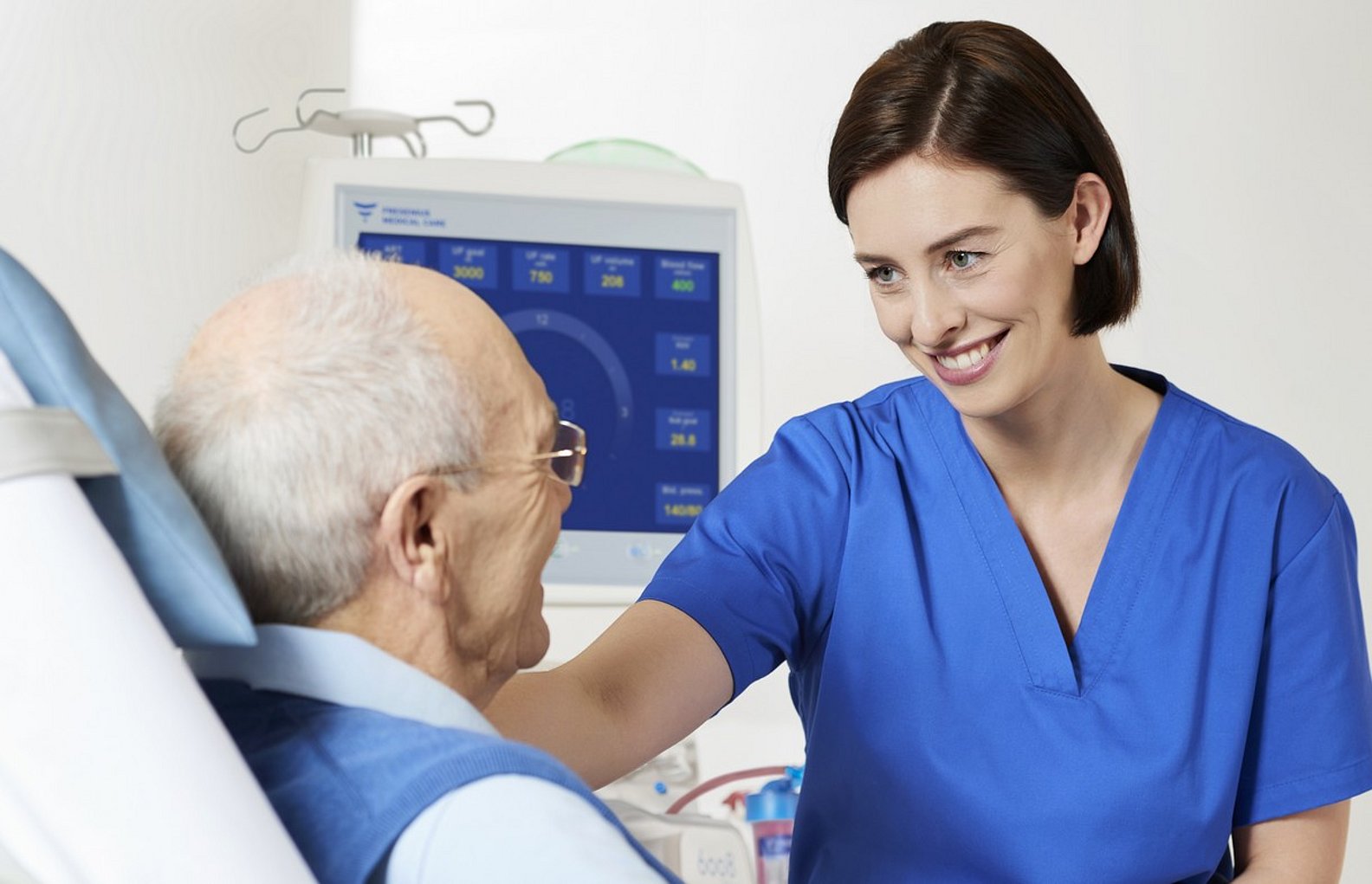
Hemodialysis is a treatment where blood is filtered outside the body with a dialysis machine. During hemodialysis, blood is drawn off from a blood vessel and passed through a synthetic filter, called a dialyzer. In this dialyzer the blood is cleaned before being returned to the body, therefore, this dialyzer is the so called ‘artificial kidney’. Hemodialysis is generally performed for at least four hours three times a week, usually in a dialysis unit. An alternative to a clinic based dialysis treatment is being treated in a familiar environment at home. Different types of home dialysis allow patients to adapt their treatment to their everyday routine. However every type of treatment has its own challenges.
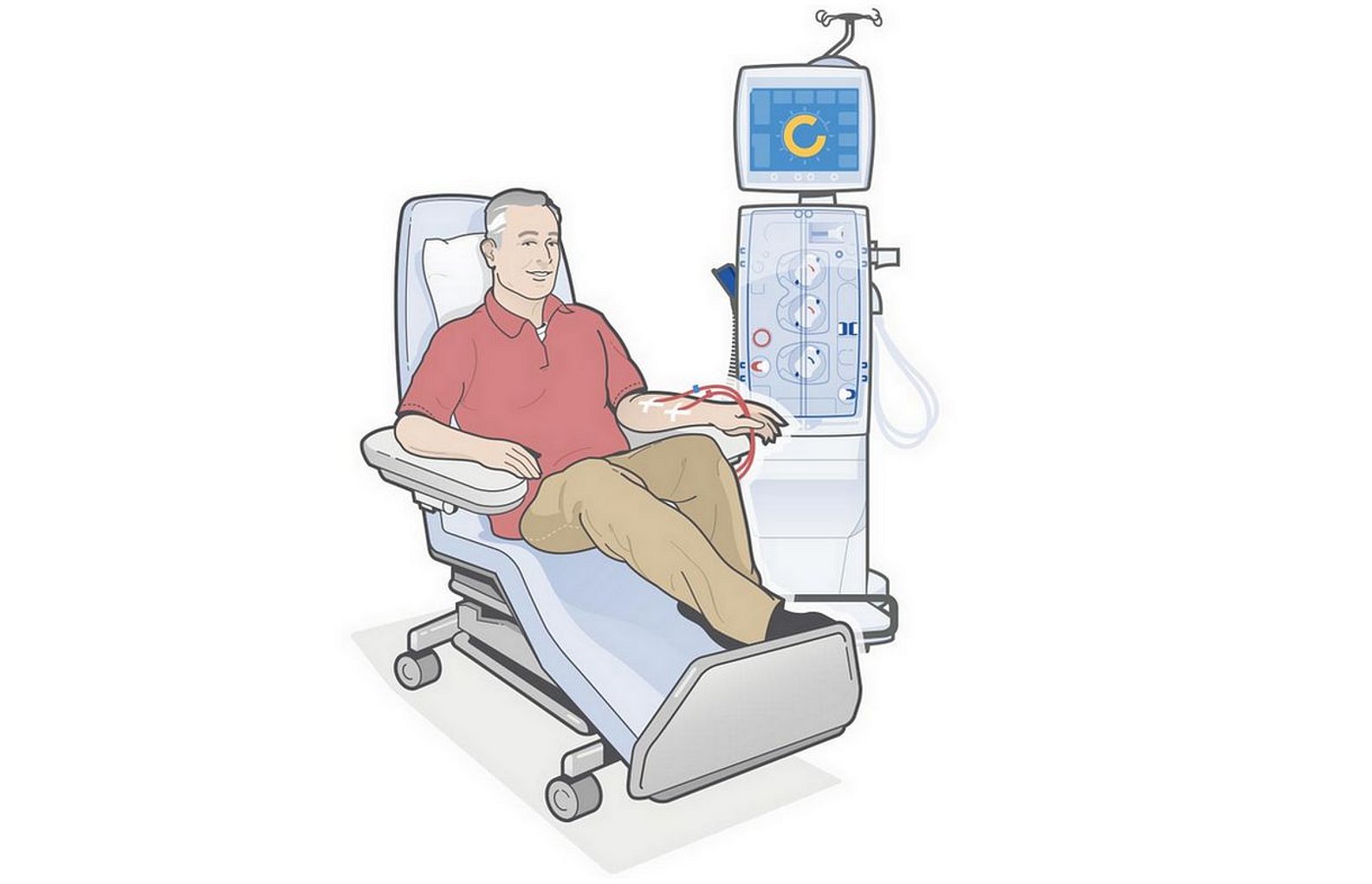
With modern dialysis machines, three hemodialysis sessions a week, each lasting for a minimum of four hours are usually what you’ll need. During this time patients are connected to the dialysis machine. It’s really quite remarkable when you consider that the dialysis machine is trying to achieve in twelve hours treatment per week what healthy kidneys do around the clock, day in, day out. By taking the right steps, together we can help you lead a life as healthy as possible.
Peritoneal dialysis (PD)

Peritoneal dialysis treatment is so called, because the blood is filtered in the peritoneum – the membrane that lines the cavity. The peritoneal cavity stores the dialysis fluid and the filtration takes place across the peritoneum. Toxins and excess fluid cross the peritoneal membrane during the prescribed dwell time.
A permanent tube, or catheter, is inserted into the peritoneal cavity. Through which, dialysis fluid is fed into the cavity and left to absorb the impurities from the blood. Later, the fluid is drained-off into a bag and replaced with fresh fluid. This process, of filling and draining, can be done manually during the day. Or done automatically at night with a cycler. Either way you will need to feel capable and confident to handle the procedure.
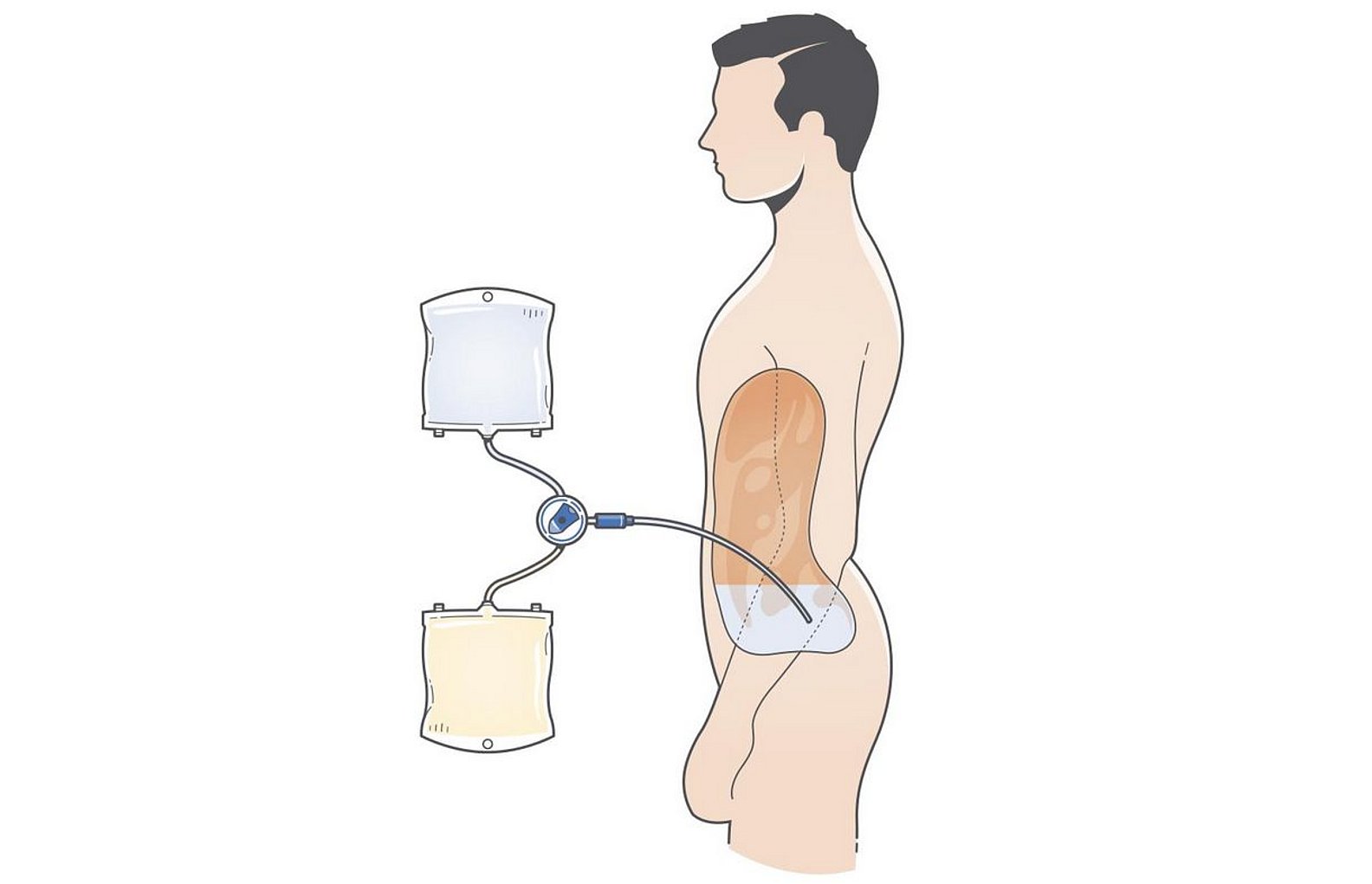
There are times when peritoneal dialysis may be the better option. But in many cases, it’s a medically-driven choice. For example, if you have some types of heart or vascular disease. Because of their restricted vascular access, peritoneal dialysis is usually the treatment choice for young children. Opting for dialysis at home also allows children to continue their schooling.
Transplantation

Kidney transplantation involves implanting a healthy kidney from one donor, alive or deceased, to a person with chronic kidney disease. Receiving a new kidney is not a cure for kidney disease, but a treatment. Many patients with chronic kidney disease are suitable candidates for transplantation. But not everyone.
If you would like to explore transplantation as a treatment option, the first step is to discuss your personal situation with your nephrologist. The nephrologist evaluates your health and kidney condition before making a recommendation. If your nephrologist concludes you would make a good transplantation candidate, you often need to complete examinations and tests. Then your doctor can place you on the national transplant waiting list to receive a kidney from a deceased individual, or find a compatible live donor.
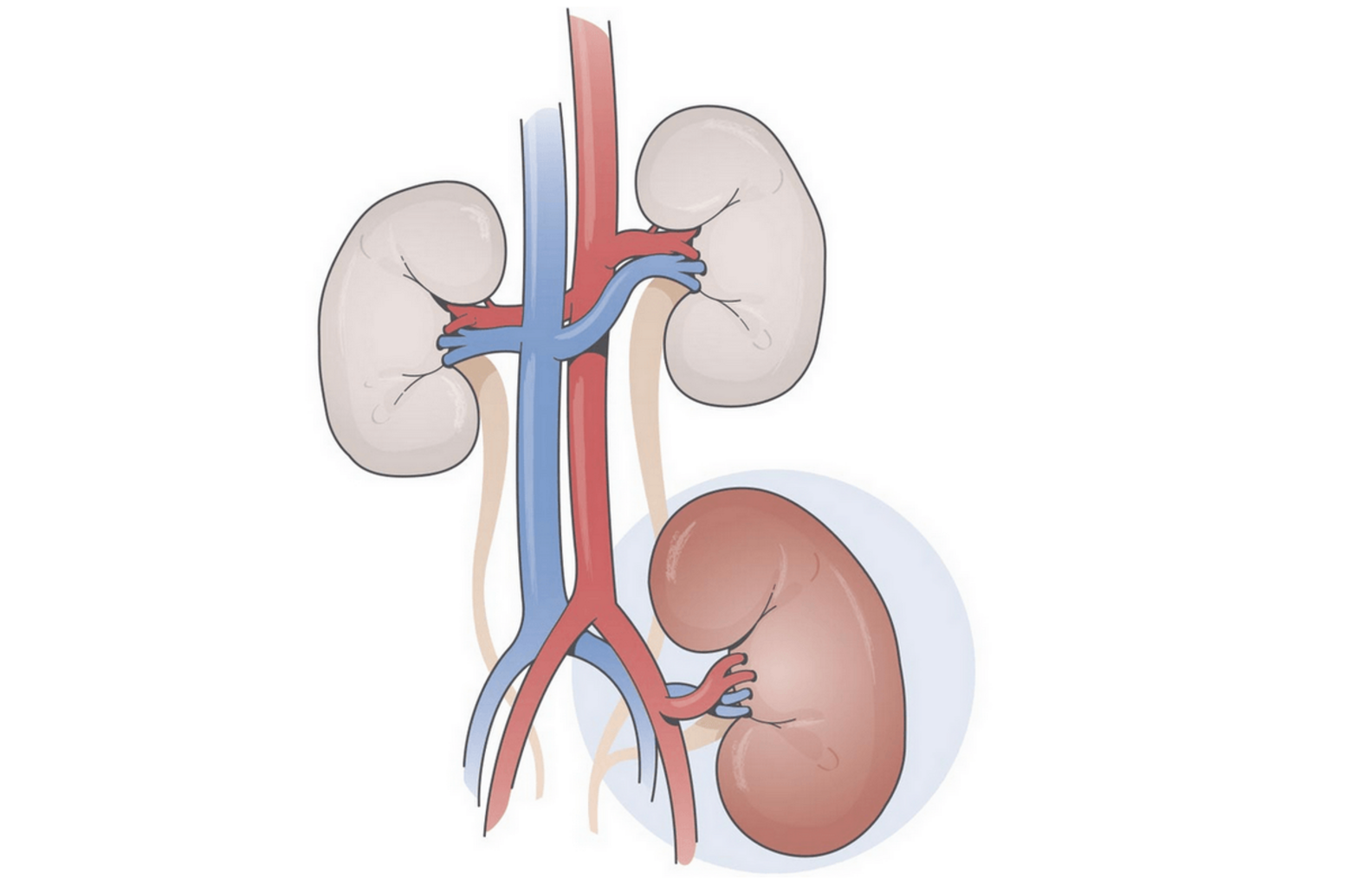
Transplantation is a highly personal topic – one that you should give both time and thought to. Perhaps begin by speaking to your nephrologist about your situation. If you both agree that transplantation is an option, you can always get placed on the waiting list if you don’t have a living donor, while giving the decision more thought. Speaking to others about the benefits and disadvantages of transplantation may help you reach a decision on what's best for you.
Treatment locations
Dialysis can be administered at a hospital, a medical facility or at home. Both Hemodialysis and Peritoneal dialysis can be provided at either a medical facility or in the familiar surroundings of your home. In-center dialysis gives you the certainty that doctors and caregivers will supervise your regular dialysis sessions, which will usually take place 2-3 times per week in the clinic. Home dialysis gives you the opportunity to complete your dialysis treatment more flexibly and at a time and place of your convenience, leaving you with more quality time.
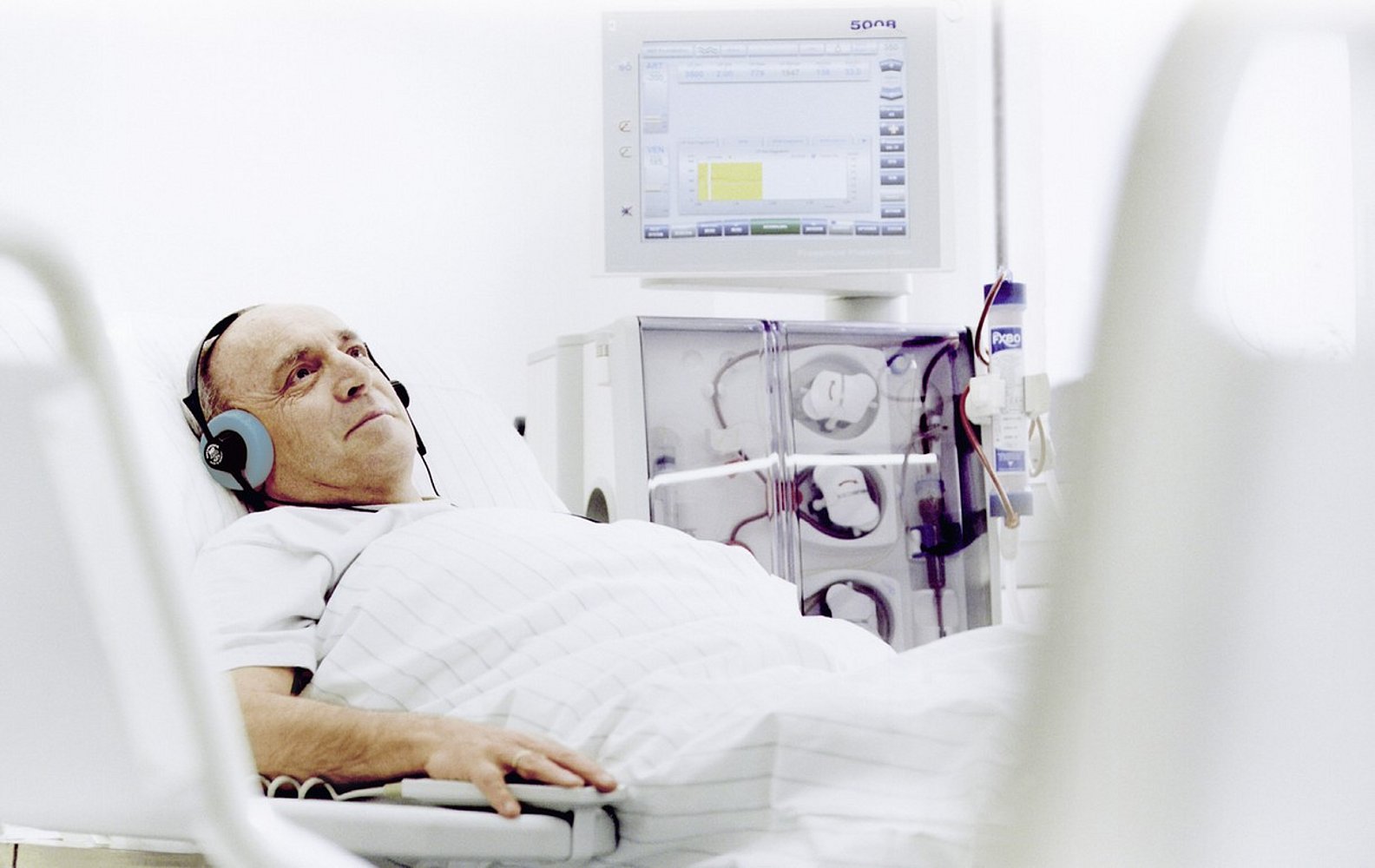
Hemodialysis uses a dialyzer (filter) with a hemodialysis machine, and Peritoneal dialysis uses the peritoneum with dialysis fluid to clean the blood. At a dialysis center or hospital, the medical staff will prepare, perform and monitor your treatment. Hemodialysis in a center usually takes place three times a week and lasts approximately 4–5 hours for each session plus travel time to and from the center.

After set-up and training, hemodialysis treatment can be self-administered at your own home according to a schedule prescribed by your doctor.
Peritoneal dialysis (PD) at home
PD uses your body’s own peritoneal membrane within the abdomen as the filter to clean your blood. This procedure is quite gentle and can be self-administered at home or on the move. PD treatment is usually performed on a daily basis and integrated in an active life at a place of your preference.
Learn more about the different forms of dialysis and discuss which of these options is the most suitable for you with your doctor.
Your life. Your therapy. Your options.
Home patients care
Fresenius Medical Care, a global leader in dialysis, offers reliable and proven dialysis products at the highest of standards.
We offer the following services and support for patients on courses of home treatment (depending on the local availability and legislation):
- Home delivery
- Training materials for patients
- Living with home treatments guide
- Kidney Options: explaining dialysis options
- At-home installation
- Technical service to home devices
- Patient satisfaction survey
- NephroCare clinics
- Travel service for dialysis patients
Frequently asked questions about dialysis
Will my kidney cure when I get dialysis?
Dialysis is a procedure that can replace the two most important kidney functions: removal of excess body water and removal of waste products that have built up in the blood.
Dialysis is not a cure.
Do I have to stop working?
You can generally return to work or continue education while on dialysis, depending on your individual medical situation. If you are treated in a dialysis center, you will be given a treatment plan that fits your work or education schedule. Another alternative is home hemodialysis or peritoneal dialysis, which allow for more flexibility in schedules.
Is dialysis painful?
During dialysis you may feel a pinch when each of the needles go in. There are skin numbing drugs that can help. The rest of your dialysis treatment should not hurt. If it does, tell your staff member so they can fix it.
What can I drink and eat as a dialysis patient?
You will need to follow a special diet. There are different diets for PD and HD patients. Ask your nephrologist for advice.
Can I do sport?
Patients should be active in sport and take part in games, as a reasonable sportive exercise helps you stay healthy and feel good. In any case, seek advice from your doctor before beginning with a sports activity.

